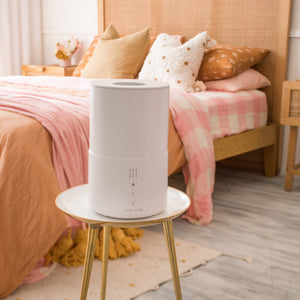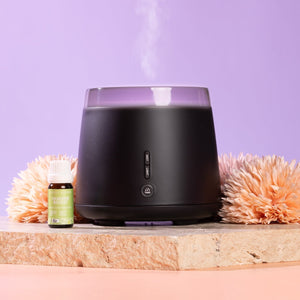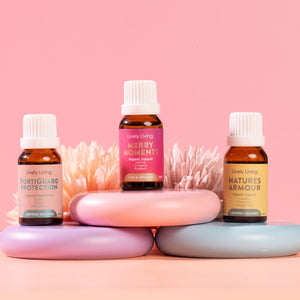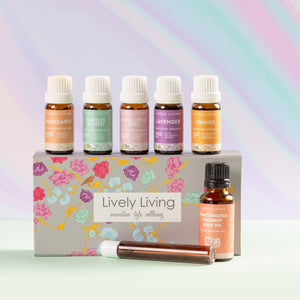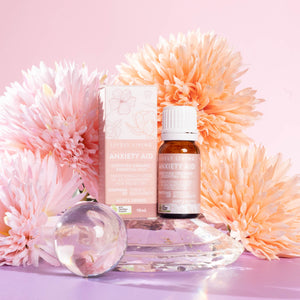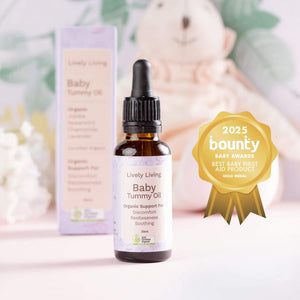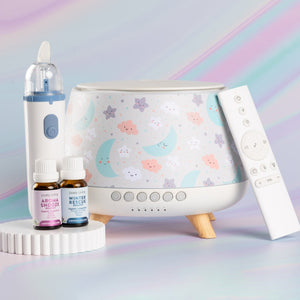Understanding the Importance of Relaxation and Aromatherapy
Realising the necessity of unwinding, and the importance of relaxation, is critical in today's frenzied, pressure-filled world. The human body responds to stressful situations by releasing hormones that increase heart rate and blood flow, resulting in muscle tension. While this reaction can be beneficial for short-term survival scenarios, chronic activation of these responses may lead to serious health issues.
In this blog post, we delve into the intricacies of stress - its triggers, physical symptoms and mental impacts. We will then explore simple relaxation techniques endorsed by health care providers worldwide; from progressive relaxation to tai chi.
We will also discuss how aromatherapy plays a significant role in reducing cortisol levels naturally as well as practical ways you can incorporate it into your daily routine. By understanding the importance of relaxation, the science behind these techniques and their benefits on our wellbeing, we reiterate the importance of relaxation not just as a luxury but a necessity for maintaining optimal health.
Table of Contents:
- Understanding Stress and Its Impact
- The Role of Relaxation in Managing Stress
- Practical Ways to Reduce Everyday Life's Stresses
- Aromatherapy: Your Natural Stress Buster
- Incorporating Aromatherapy Into Your Daily Routine for Enhanced Wellness
- FAQs in Relation to The Importance of Relaxation
- Understanding Stress and Its Impact
- The Role of Relaxation in Managing Stress
Understanding Stress and Its Impact
All of us come across tension at some stage in our lives. But what exactly is stress? According to the American Psychological Association, stress is a normal reaction to everyday pressures, but it can become unhealthy when it messes with your day-to-day functioning.
Stress is the body's response to any change that requires an adjustment or response. It's like a natural part of life. In fact, a little stress can be good for you, like a sprinkle of motivation on your morning cereal.
Common Triggers of Stress
- Work-related issues: This could include job insecurity, heavy workload, long hours, or poor management. Basically, everything you dislike about Mondays.
- Social factors: Like relationship problems, family disputes, or dealing with difficult individuals. You know, those people who make you question your faith in humanity, to those whom simply press your buttons.
- Lifestyle choices: Such as lack of sleep, no exercise, junk food, and alcohol. It's like a recipe for disaster, but without the delicious outcome.
Mental Impacts of Severe Stress
Extended bouts of intense pressure can wreak havoc on your psychological wellbeing, causing gloominess and uneasiness disorders. It's like having a dark cloud follow you around, raining on your parade and stealing your sunshine. Seek professional help if you're feeling overwhelmed, because superheroes need sidekicks too.
The Physical Symptoms Of Prolonged Stress
Unchecked stress can cause physical symptoms such as headaches and fatigue, which may worsen over time leading to serious health issues. It starts with headaches and fatigue, but can escalate to serious health issues like heart disease and hypertension. According to Harvard Health Publishing, stress is like a silent ninja, attacking your well-being when you least expect it. Therefore, it is essential to be mindful of stress and find ways to keep it in balance.
Stress is a normal reaction to everyday pressures, but it can become unhealthy when it affects our daily functioning. Common triggers of stress include work-related issues, social factors, and lifestyle choices. Prolonged periods of severe stress can have negative impacts on mental health and physical well-being. It's important to learn how to manage stress in order to prevent serious health issues.
The Role of Relaxation in Managing Stress
Relaxation is not only a luxury, but an essential part of maintaining good health and reducing stress levels. When we relax, our bodies respond by lowering heart rate, blood pressure, and cortisol levels - the body's primary stress hormone. This not only makes us feel better physically but also benefits our mental wellbeing.
Why Relaxation Matters in Reducing the Effects of Stress
Nowadays, many folks fail to recognize the significance of taking time out for relaxation. However, research from Harvard Medical School suggests that regular relaxation can help reduce symptoms associated with stress, like headaches or digestive problems. It also explains how these techniques can improve concentration, mood, and sleep quality.
Health Benefits Associated with Regular Relaxation
- Mental Health: Consistent relaxation practices like meditation or yoga have been shown to decrease anxiety levels and increase feelings of well-being, according to a study published on JAMA Network.
- Better Sleep: By reducing muscle tension through methods like progressive muscle relaxation (PMR), you're likely to experience improved sleep quality, as per findings shared by PubMed Central.
- Cognitive Functioning: Activities that promote calmness, such as reading or listening to soothing music, may enhance cognitive functioning, including memory recall, based on studies featured at ScienceDirect.
To sum up, incorporating periods of rest into your daily routine isn't just about feeling relaxed ”it's about promoting overall wellness, both mentally and physically.

Practical Ways to Reduce Everyday Life's Stresses
In the current hectic environment, strain has become a normal element of our regular lives. But don't worry. We can conquer this stress monster with some practical techniques. Let's dive in.
Finding Time For Quick Relaxation
Combatting stress doesn't have to take hours. Just a few minutes of relaxation throughout the day can work wonders. Take a deep breath, do some yoga poses, and watch your cortisol levels drop like a mic.
Scheduling Wellbeing Activities
Don't just let the pressure pile up—take action to keep your spirits high. Schedule activities that promote your wellbeing. Get crafty, have coffee with friends, or embrace your inner green thumb with gardening. These activities will kick cortisol to the curb.
Remember, consistency is key. Make these activities a part of your regular routine for long-term stress relief. By doing so, you'll build a fortress against future stress attacks.
Aromatherapy is also a stress-busting superhero, but we'll talk more about that in 'Aromatherapy as a Natural Antidote for Reducing Cortisol Levels'. Stay tuned.
Aromatherapy: Your Natural Stress Buster
Stressed out? Aromatherapy to the rescue. Inhaling essential oils can zap cortisol levels, leaving you feeling zen and fabulous.
The Science Behind Aromatherapy and Chill Vibes
Research says sniffing certain scents activates your brain's smell center, reducing stress and anxiety. Goodbye, cortisol.
Essential Oils for Emotional Bliss
- Lavender: The calm-inducing superstar. Sleep tight, anxiety.
- Sweet Orange: Bye-bye, blues. This citrus scent lifts your spirits.
- Geranium: Hormonal havoc? Geranium's got your back, balancing those bad boys.
Whether you're diffusing or massaging, these oils are your ticket to emotional harmony. Get yours from Lively Living and feel the difference.
Remember, quality matters. Choose certified organic oils like Lively Living's for pure, synthetic-free bliss. Your nose will thank you.
Incorporating Aromatherapy Into Your Daily Routine for Enhanced Wellness
Aromatherapy is an easy way to support you. By incorporating this practice into your everyday routine, you'll feel like a wellness champion.
Instant Bliss with Ultrasonic Diffusers
Ultrasonic diffusers are a excellent way for bringing aromatherapy into your everyday life. Diffuse essential oils at home or on-the-go for a quick dose of essential oil goodness. Inhale the aromatic benefits of lavender, orange, geranium and beyond. It's like a spa day in a bottle.
Massage Oils: The Ultimate Relaxation Combo
For a more tactile experience to unwind, massage oils infused with essential oil blends may be the answer. Get your hands on some massage oils infused with essential oil blends. These babies combine the power of touch with the aromatic benefits of essential oils. Rub 'em on your wrists or temples when stress strikes. Ahh, sweet relief.
But wait, there's more. Scientifically speaking, both aromatic mists and massage oils can naturally reduce cortisol levels, promoting emotional balance and overall well-being. So, they're not just fun, they're legit.
Life can get crazy, but don't forget to prioritize self-care. Take a moment each day to indulge in these simple practices. Trust us, your mind and body will thank you.
FAQs in Relation to The Importance of Relaxation
What are 3 benefits of relaxation?
- Relaxation can lead to reduced stress levels.
- It can improve mental clarity.
- And enhance overall well-being.
Why is rest and relaxation important?
- Rest and relaxation play a crucial role in maintaining physical health.
- They also boost mental performance.
- And promote emotional stability.
What is the importance of relaxation in nursing?
- In nursing, effective relaxation techniques can help manage work-related stressors.
- They can improve patient care quality.
- And prevent burnout.
Understanding stress and its impact is crucial for managing our overall health.
By recognizing the causes of stress and including aromatherapy into our daily regimen, we can diminish the bad effects of tension on both psychological and physical health. The importance of relaxation cannot be overstated - it allows us to recharge, rejuvenate, and find balance amidst life's everyday stresses.










